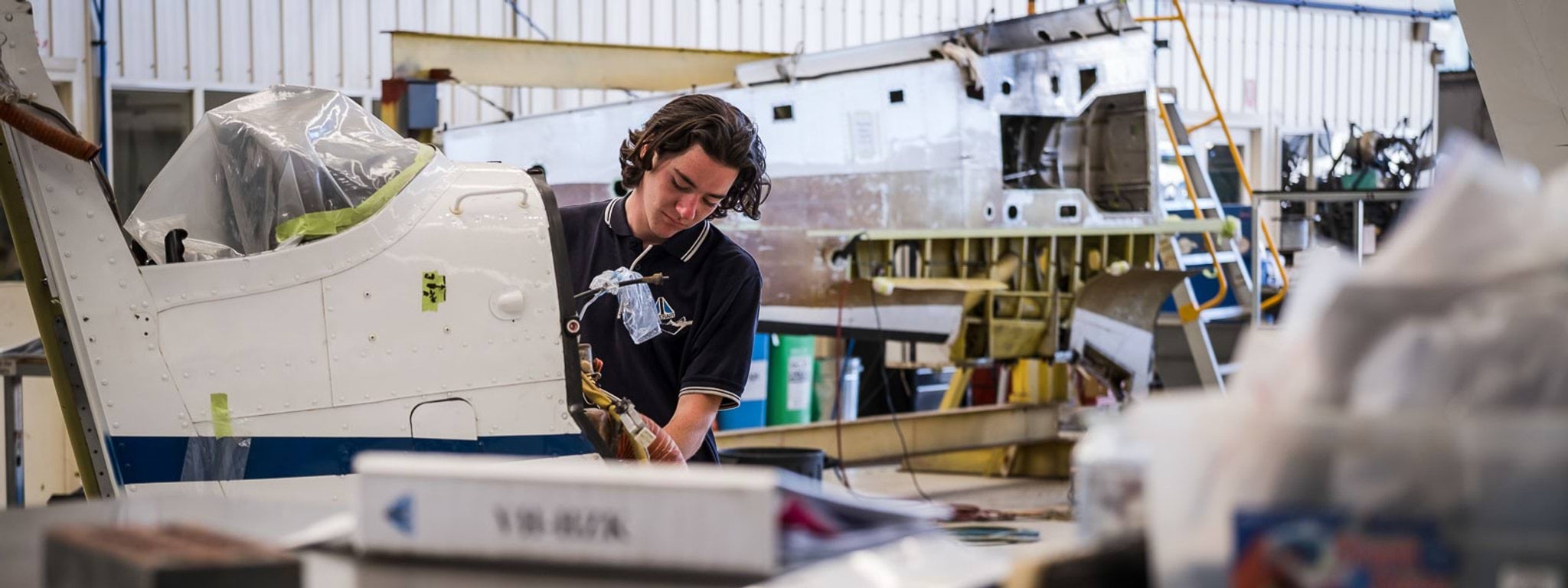Work-Based Learning Application
The Work-Based Learning Application is available to all Victorian government secondary schools to digitally manage work experience and structured workplace learning arrangements.
It digitises the arrangement process, allowing more time to be spent on delivering quality career education and student support.
School staff can access the Work-Based Learning Application via the Career and Pathways Platform.
To find support resources, visit Work Experience and Structured Workplace Learning.
About work-based learning
Work-based learning is delivered in partnership between schools and employers or community organisations. It connects students to industries and work environments, supporting their career exploration and development.
Key types of work-based learning includes work experience, industry or community organisation exposure programs, structured workplace learning (SWL) and school based apprenticeships and traineeships (SBATs).
Research shows that work-based learning is valuable to students because it can:
- inform career aspirations and development, helping them set goals and make sound decisions about their career path
- support development of soft skills like communication, teamwork and time management, particularly when students spend time in a workplace
- improve engagement in education, through contextualising classroom learning and demonstrating its value in real-world settings
- improve employment outcomes, either immediately through a placement or over the long-term through workplace skill development and an understanding of employer expectations.
Work-based learning can help students explore the growth industries in your region. Use the Victorian Skills Authority’s employment forecast dashboard to explore changes to your local area’s labour market.
Finding work-based learning opportunities
School to Work
The Victorian Government funds Local Learning and Employment Networks (LLENs) to deliver the School to Work program. The program sees LLENs work with local employers, industry partners and schools to improve students’ access to work-based learning opportunities.
School staff and students can find work experience, SWL and SBAT opportunities on the School to Work Portal.
Head Start
Head Start supports students in Years 10-12 to participate and succeed in an SBAT, developing skills, capabilities and confidence that employers need while completing school.
There are 12 Head Start teams who will work with your school and employers to arrange and support the SBAT.
To learn more about the program and contact your local Head Start hub, visit Head Start apprenticeships and traineeships.
Trade & Tech Fit
This career expo for female and gender diverse students highlights the rewarding and growing opportunities in traditionally male industries.
For more information, and to bring a group of students to the next expo, visit Trade & Tech Fit.
Tech Schools
Victoria’s Tech Schools provide high-tech, hands-on STEM programs to secondary school students in their local areas.
Tech Schools can provide work-based learning opportunities, such as industry immersion programs. For more information, contact your local Tech School.
Parent and carer engagement
Your students’ parents and carers may wish to help arrange a work-based learning opportunity or placement for their young person through their personal or professional networks. This can be a positive way for them to engage in their young person’s career development.
A young person’s career action plans and Morrisby profile will help their parents or carers understand the type of work-based learning that may be relevant to the young person’s strengths, interests and goals.
Work-based learning placement policies
Schools, parents or carers, employers and students all have responsibilities for making sure work-based learning placements are safe and successful.
Policy and Advisory Library explains the requirements for:
Connecting with other key activities
Career action planning helps to prepare for and identify work-based learning opportunities appropriate to students’ needs. It also provides an opportunity to reflect on those experiences.
Students who have participated in My Career Insights can use Morrisby to identify industries and roles to explore further with work-based learning. The pilot of Enhanced My Career Insights (EMCI) also provides additional support for participating in work-based learning to Year 9 and 10 students from priority cohorts.
Career counselling can draw on students’ experience in work-related settings to help them make informed choices about subjects and post-school pathways.
ARC Learning contains many resources and lesson plans that can be used to assist students as they prepare for work experience and other work-based learning activities.
Updated
